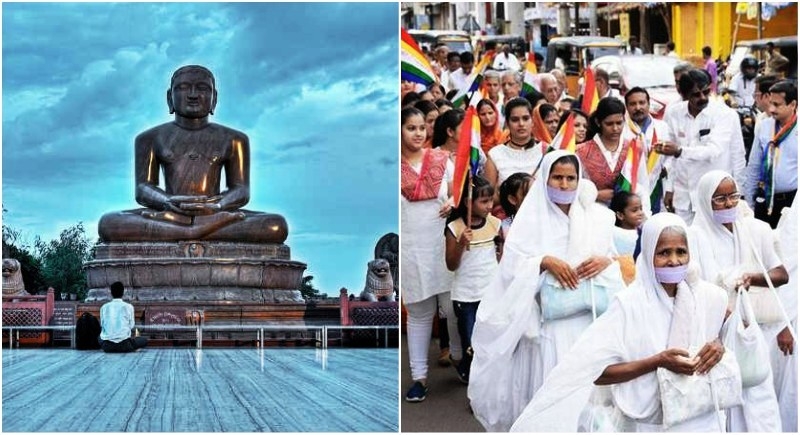Last Tirthankara of Jainism Lord Mahavira: Take a vow on his birth anniversary to follow these 5 preaching
Mumbai, March 29: Mahavira Jayanti, a significant day for the Jain community across the world, is being celebrated today this year. The festival is considered to be the most important one for Jains and marks the birth anniversary of Lord Mahavira, the last and 24th Tirthankara.

The day should not only be important for only Jains but also for each and everyone because the words Mahavira gave to this world are a path for a perfect way of living. Mahavira is the symbol of non-violence, peace, love and truth. His main and foremost preaching was “love each creature of this world and care for them.” Mahavira showed the world the right way and guided through his teachings and discourses.
Lord Mahavira was born in the palace of Vaishali to King Siddhartha and Queen Trisala. He took over the kingdom when he came of age and ruled it for over 30 years after which he decided to give up all the redundancies of life to seek enlightenment.
Ahimsa (Non-violence or Non-injury). Mahavira taught that every living being has sanctity and dignity of its own and it should be respected just as one expects one's own sanctity and dignity to be respected. Ahimsa is formalized into Jain doctrine as the first and foremost vow. The concept applies to action, speech, and thought.
Satya (Truthfulness) – Neither lie nor speak what is not true, do not encourage others or approve anyone who speaks the untruth.
Asteya (Non-stealing) – Theft is explained as "taking anything that has not been given".
Brahmacharya (Chastity) – Abstinence from sex and sensual pleasures for Jain monks, faithfulness to one's partner for Jain householders.
Aparigraha (Non-attachment) – For laypersons, the attitude of non-attachment to property or worldly possessions; for mendicants, not owning anything.
Since the day is considered to be special, people who belong to the community indulge in a number of charitable works in an attempt to give back to the society and do good. They also get together and visit temples that are dedicated to Lord Mahavir and conduct prayer meets. Monks or priests of the community also hold lectures so as to preach the path of virtue that defines Jainism.
Like any other festival, food plays an important role in Mahavir Jayanti celebrations. The Jains follow a satvik diet that has a strict abstinence from onions and garlic.
Their central idea of eating is to consume fresh meals made from natural means with minimum harm to living creatures.